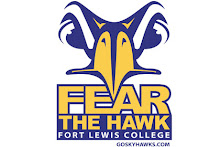




He played college football for Kilgore College, a junior college, for two years, and then Yankton College in South Dakota, where he was noticed by a Denver Broncos coach watching film. The Broncos drafted him in the fourth round, in 1971. Alzado went back to Yankton after his rookie season to get his college degree. He received a B.A. in physical education with an emphasis on secondary education. During his career, he played defensive line for the Los Angeles Raiders, Cleveland Browns, and Denver Broncos during the 1970s and early 1980s. He was noted as a colorful and popular figure with the Broncos, Browns and Raiders. When the Broncos starting right defensive end was injured in 1971, Alzado took over the job and never gave it up. Alzado made various All-rookie teams for his contributions of 60 tackles and 8 sacks. The following year, Alzado began to get national attention as he racked up 10½ sacks to go with his 91 tackles. In 1973, Alzado posted excellent numbers as the Broncos had a winning record for the first time in team history with a 7-5-2 mark. Alzado especially shined in a Monday Night Football game that season. In 1974, Alzado gained more notice as one publication named him All-AFC, with his 13 sacks and 80 tackles (eight for a loss) he was being recognized with the NFL's top defensive ends, such as Elvin Bethea, Jack Youngblood,L.C. Greenwood, Claude Humphrey, and Carl Eller. The Denver Broncos posted their second consecutive winning season, going 7-6-1. The 1975 season brought change as Alzado moved to defensive tackle for the first time in the NFL. He responded with 91 tackles and 7 sacks. Alzado took a step backward as did the Broncos with a 6-8 record. On the first play ofthe 1976 season, Alzado blew out a knee and missed that campaign. The Broncos were 9-5 but SPORT magazine reported a Bronco player mutiny. Twelve players, including Alzado, did not think the team could reach the next level, the playoffs, with Coach John Ralston. Ownership finally agreed and hired Red Miller for the 1977 season. The 1977 season was the most successful in franchise history to that point;the Broncos had one of the NFL's best defenses and went 12-2 and then beat Pittsburgh Steelers and Oakland Raiders in the playoffs to reach Super BowlXII. In that game, played in New Orleans, they were beaten soundly 27-10 bythe Dallas Cowboys. Still, the year was a big success for Alzado, who was voted consensus All-Pro and consensus All-AFC as well as winning the UPI AFC Defensive Player of the Year. He also led the Broncos in sacks with 8, while making 80 tackles. The Broncos again went to the AFC playoffs, losing the first round to the eventual champions Steelers. Alzado had 77 tackles and 9 sacks and recorded his first NFL safety. (Alzado would record two more in his career, which ties him in second place all-time). He was 2nd team All-Pro and a consensusAll-AFC pick. In 1979 he had a contract dispute, and the Broncos traded him to the Cleveland Browns. He played well with the Browns, making second team All-AFC in 1979 while playing defensive end. Alzado had 80 tackles in that year to go with his seven sacks. The following year the Browns won the AFC Central division,losing to the Raiders in the Divisional round. Alzado led the Browns in sacks with nine, and was All-Pro and All-AFC. In 1981 he suffered some injuries, and at times his focus on football was diminished because of problems in his private life. Still, he recorded 83 tackles and led the Browns in sacks with 8½. However, the Browns traded him to the Los Angeles Raiders in 1982. Being discarded by the Browns rekindled a fire in Lyle, and he worked out with a vengeance. In 1982 Alzado was voted the NFL Comeback Player of the Year. Although he played a full season in 1981, his play was seemingly so superior in 1982 that he garnered the award. In the strike-shortened 1982 season of 9 games, Alzado recorded 7 sacks and 30 tackles while being voted All-AFC. This was the sixth season out of his first twelve campaigns that he received some sort of post-season honor. Lyle was one of the fiercest competitors the NFL has ever seen. In fact, due to Alzado throwing an opponent's helmet across the field, the league instituted a rule specifically banning the act.[1] He continued to perform well for the Raiders in the 1983 season, helping lead them to a Super Bowl that year while recording 50 tackles and 7½ sacks. He also had an outstanding 1984 season with 63 tackles and 6 sacks, but was injured part way through 1985 and retired at the end of the year. His tackle and sack totals dipped to 31 and 3. By any definition it was an excellent career, nearing 1,000 tackles, recording 112½ sacks and forcing 24 fumbles. He played in two Super Bowls and emerged a winner once. He attempted a comeback in 1990, but injured a knee during training camp and was released. After this he retired for good.However, his admitted use of anabolic steroids from the time he was in college has tainted his career achievements for some.









